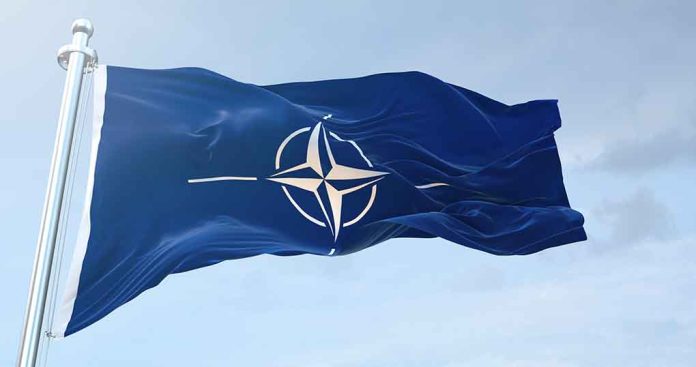
Germany deploys its first permanent foreign military unit since World War II to Lithuania, sending a clear message to Russia that NATO’s eastern flank will be defended at all costs.
Key Takeaways
- Germany’s 45th Armoured Brigade “Lietuva” is being deployed to Lithuania, comprising 4,800 soldiers and 200 civilian staff.
- This marks Germany’s first permanent overseas military deployment since World War II, directly responding to Russian aggression.
- Lithuania is considered the most vulnerable NATO member on the eastern flank due to its borders with Russian Kaliningrad and Belarus.
- The deployment aims to build Europe’s “strongest conventional army” amid concerns about American commitment to European defense.
- The European Parliament has imposed new tariffs on Russian and Belarusian fertilizers to limit funding for Russia’s war efforts.
Germany’s Historic Military Commitment to NATO’s Eastern Defense
In a decisive move that signals Germany’s shifting defense posture, Chancellor Friedrich Merz visited Lithuania to inaugurate the 45th Armoured Brigade Lietuva in Vilnius. This deployment represents Berlin’s first permanent foreign troop stationing since the Second World War, underscoring the seriousness with which Germany views the Russian threat to NATO’s eastern members. The brigade, consisting of 4,800 German soldiers and 200 civilian staff, will be fully operational by 2027, with an advance contingent of 400 Bundeswehr personnel already stationed in Lithuania.
During the inauguration ceremony, Chancellor Merz emphasized “There is a threat to us all from Russia, the security of our Baltic allies is also our security.” This commitment comes as NATO members increasingly recognize the vulnerability of the Baltic states following Russia’s continued aggression against Ukraine and hybrid warfare tactics in the region. The deployment represents a significant shift in German foreign policy, moving away from post-WWII reluctance toward foreign military engagement.
Strategic Significance for Baltic Security
Lithuania stands as perhaps the most vulnerable member of NATO’s eastern flank, sharing borders with both the Russian exclave of Kaliningrad and Belarus, Russia’s closest ally. Recent reports of Russian spy planes in Belarus and hybrid warfare tactics in the Baltic Sea region have heightened concerns about potential Russian aggression. The deployment of a full German armored brigade represents a substantial deterrent force and demonstrates NATO’s resolve to defend its territory. Lithuanian President Gitanas Nauseda characterized the alliance with Germany as an unbreakable force during the brigade’s inauguration.
“We must do everything to defend ourselves – so that we never have to,” said Friedrich Merz, German Chancellor.
The brigade’s presence addresses long-standing fears among Baltic states that they could be targets of Russian military action similar to what Ukraine has experienced. By stationing a substantial force in Lithuania, NATO establishes a tripwire that would trigger an immediate alliance-wide response to any Russian incursion. Merz made this explicit during his visit: “Anyone who challenges NATO must know that we are prepared. Anyone who threatens any ally must know that the entire alliance will jointly defend every inch of NATO territory,” he declared with unmistakable clarity.
Challenges and Broader European Defense Implications
Despite the bold commitment, Germany faces significant challenges in fulfilling its military ambitions. The Bundeswehr currently struggles with personnel and equipment shortages after decades of underinvestment following the Cold War. Chancellor Merz has pledged to address these deficiencies by increasing defense spending and implementing new laws to make military careers more attractive, with the goal of boosting military personnel to 203,000 by 2031. This comes as Germany aims to build Europe’s strongest conventional army amid changing global dynamics.
The deployment also reflects growing concerns about American commitment to European defense, particularly as President Trump has consistently called for European NATO members to increase their defense spending. By taking a leadership role in Baltic defense, Germany is addressing these concerns while strengthening the European pillar of NATO. Simultaneously, the European Parliament has voted to impose tariffs on fertilizers from Russia and Belarus, demonstrating a coordinated approach to limit Russia’s economic capacity to wage war against Ukraine.
Germany’s military commitment to Lithuania represents a watershed moment in post-Cold War European security architecture. It signals both a recognition of Russia’s willingness to use military force against its neighbors and a determination among European NATO members to take greater responsibility for their collective defense. As Defense Minister Boris Pistorius emphasized, the deployment sends a strong message of solidarity and readiness that may prove crucial in deterring further Russian aggression against NATO territory.




